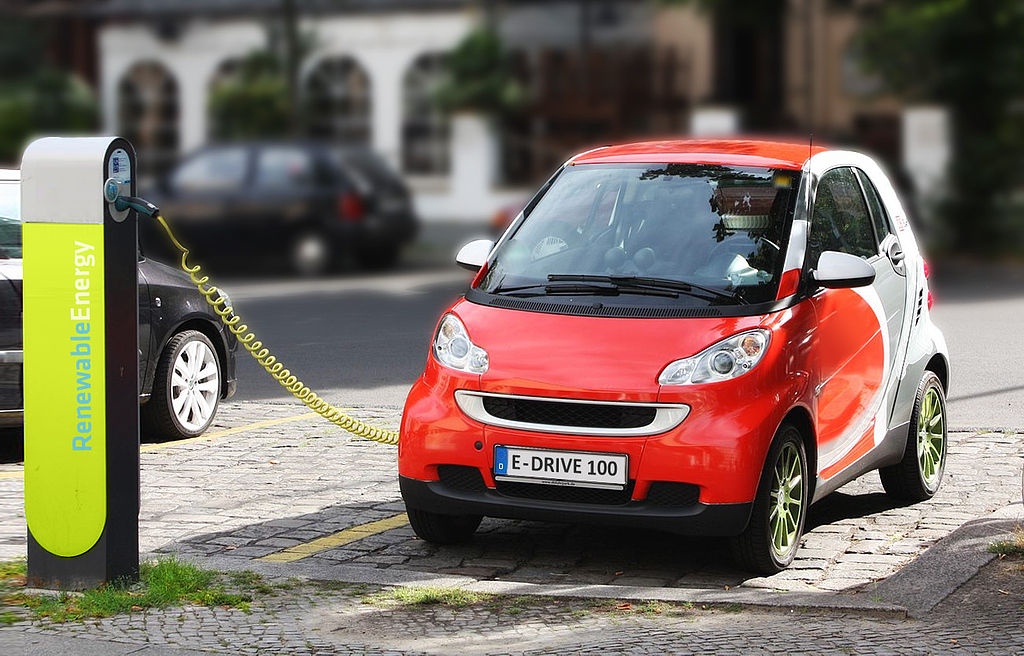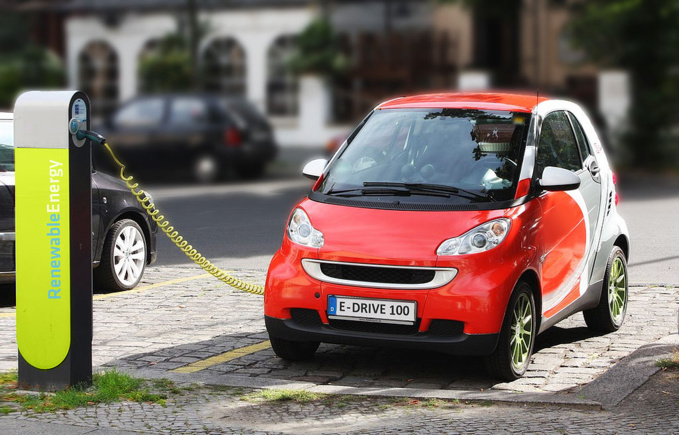Currently, there are 400 thousand EVs in the US, which is a sharp rise compared to 2010. However, this is much less than indicated by President Obama's target of 1 million electric cars by 2015.
Meanwhile, China has become the largest sales market for electric vehicles, ahead of the US in terms of annual sales in the past year.
1 million – how much is it? It depends on how you look at this issue. Back in 2005, there are only several hundred electric vehicles on the planet. In 2013, however, the total number of EVs on the planet had tripled. For comparison, there are over 1 billion vehicles on gasoline and diesel fuel taking a drive every day.
The demand for such cars grew significantly over the past decade, and will continue to grow as middle-class is enlarging in countries such as China and India.
So electric cars are still very far completely conquering the world.
According to IEA’s estimates, to avoid a temperature rise of more than 2 ° C, it is necessary that the number of electric vehicles on the world’s roads reached 150 million by 2030 and 1 billion by 2050.
The good news is that according to the agency’s estimates, achievement of this goal now seems more real than a few years ago. There are two reasons for this: subsidies and reducing the cost of batteries
First off, many countries have already introduced measures aimed to develop a charging infrastructure for EVs. The steps include tax incentives, introduction of the emissions norms, dedicated lanes, and so on. Thanks to these measures, electric transport becomes more accessible for consumers.
As a result, electric cars currently account for over 1% of sales in China, France, Denmark and Sweden. In the Netherlands, the sector takes up 9.7%, and 23% in Norway. It should be noted that Norway is one of the countries that provide the most generous tax breaks - about $ 13,500 for a car.
On the other hand, batteries for EVs have been getting increasingly cheaper since 2008. The battery’s cost is about one-third of the total price of an electric vehicle, so decline in its value leads to an overall reduction in electric vehicles’ cost. The cheaper batteries have also become an important factor that contributes to the wider dissemination of electric vehicles.
According to the US Department of Energy’s estimates, the battery cost should drop to $ 125 per kWh by 2022 in order to achieve cost competitiveness with conventional cars.
According to the IEA’s analysts, it seems quite realistic, given the current level of technological changes. In addition, the report noted that manufacturers such as Tesla and GM's, have set even more ambitious targets.
Amount of energy which is placed in a battery (energy density) has also increased substantially.
The IEA also quotes a variety of reports, which say that electric cars will soon be able to travel more than 280 km on a single charge. This figure is also very important for future prevalence of electric vehicles.
EVs are undoubtedly in the limelight, yet the IEA notes that other modes of electrified transport, including motorcycles and buses, are also very crucial. This is especially important for those countries in which these modes of transportation are used widely.
Despite the apparent environmental friendliness, electricity for electric cars still needs to be generated from somewhere.
Thus, the rapid growth of the number of electric vehicles in Hong Kong apparently was the reason for 20%-increase in CO2 emissions.
The problem is that more than half of electricity in Hong Kong is produced by coal, says Bloomberg. Therefore, the city authorities need to change the structure of power generation, with an emphasis on gas fuel, in order to implement the program of the environment preservation. Only then should a country stimulate sales of electric vehicles with help of tax incentives. Hong Kong’s government, however, did the opposite: the citizens enjoy benefits for EVs, but transition from coal to gas fuel has not yet started.
source: bloomberg.com
Meanwhile, China has become the largest sales market for electric vehicles, ahead of the US in terms of annual sales in the past year.
1 million – how much is it? It depends on how you look at this issue. Back in 2005, there are only several hundred electric vehicles on the planet. In 2013, however, the total number of EVs on the planet had tripled. For comparison, there are over 1 billion vehicles on gasoline and diesel fuel taking a drive every day.
The demand for such cars grew significantly over the past decade, and will continue to grow as middle-class is enlarging in countries such as China and India.
So electric cars are still very far completely conquering the world.
According to IEA’s estimates, to avoid a temperature rise of more than 2 ° C, it is necessary that the number of electric vehicles on the world’s roads reached 150 million by 2030 and 1 billion by 2050.
The good news is that according to the agency’s estimates, achievement of this goal now seems more real than a few years ago. There are two reasons for this: subsidies and reducing the cost of batteries
First off, many countries have already introduced measures aimed to develop a charging infrastructure for EVs. The steps include tax incentives, introduction of the emissions norms, dedicated lanes, and so on. Thanks to these measures, electric transport becomes more accessible for consumers.
As a result, electric cars currently account for over 1% of sales in China, France, Denmark and Sweden. In the Netherlands, the sector takes up 9.7%, and 23% in Norway. It should be noted that Norway is one of the countries that provide the most generous tax breaks - about $ 13,500 for a car.
On the other hand, batteries for EVs have been getting increasingly cheaper since 2008. The battery’s cost is about one-third of the total price of an electric vehicle, so decline in its value leads to an overall reduction in electric vehicles’ cost. The cheaper batteries have also become an important factor that contributes to the wider dissemination of electric vehicles.
According to the US Department of Energy’s estimates, the battery cost should drop to $ 125 per kWh by 2022 in order to achieve cost competitiveness with conventional cars.
According to the IEA’s analysts, it seems quite realistic, given the current level of technological changes. In addition, the report noted that manufacturers such as Tesla and GM's, have set even more ambitious targets.
Amount of energy which is placed in a battery (energy density) has also increased substantially.
The IEA also quotes a variety of reports, which say that electric cars will soon be able to travel more than 280 km on a single charge. This figure is also very important for future prevalence of electric vehicles.
EVs are undoubtedly in the limelight, yet the IEA notes that other modes of electrified transport, including motorcycles and buses, are also very crucial. This is especially important for those countries in which these modes of transportation are used widely.
Despite the apparent environmental friendliness, electricity for electric cars still needs to be generated from somewhere.
Thus, the rapid growth of the number of electric vehicles in Hong Kong apparently was the reason for 20%-increase in CO2 emissions.
The problem is that more than half of electricity in Hong Kong is produced by coal, says Bloomberg. Therefore, the city authorities need to change the structure of power generation, with an emphasis on gas fuel, in order to implement the program of the environment preservation. Only then should a country stimulate sales of electric vehicles with help of tax incentives. Hong Kong’s government, however, did the opposite: the citizens enjoy benefits for EVs, but transition from coal to gas fuel has not yet started.
source: bloomberg.com



















